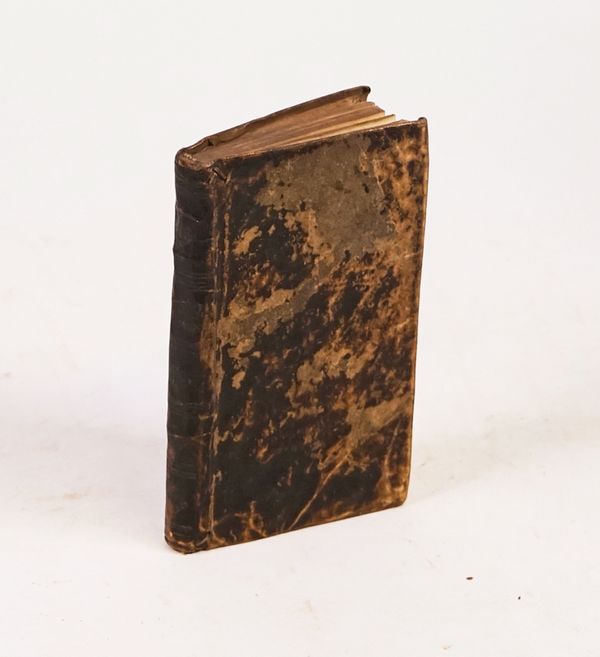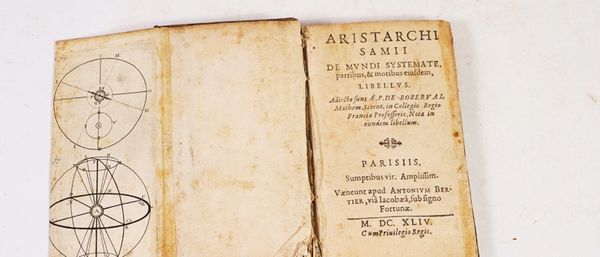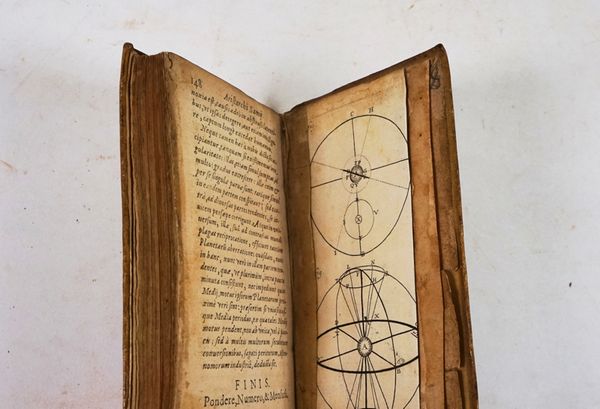ROBERVAL, Gilles Personne de (1602-75). Aristarchi Sami. De mundi systemate.
| Estimate: | £400 - £600 |
| Hammer price: | £300 |
ROBERVAL, Gilles Personne de (1602-75). Aristarchi Samii. De mundi systemate, partibus, & motibus eiusdem, libellus. Paris: Sumptibus vir. Amplissim. Væneunt apud Antonium Bertier, 1644 [dedication dated 1643]. Small 8vo in 4s (141 x 80mm). Headpieces and initials, 2 folding engraved plates (one plate detached, title lightly browned, holes in aii affecting letters, some mainly marginal spotting and staining, a few darker spots). Contemporary vellum (heavily stained). Provenance: later French inscription on verso of title which discloses that the present work is a forgery: "... il fut composé par Roberval qui voulait ... défendre le systeme de Copernic"; from the Collection of Peter and Margarethe Braune. FIRST EDITION of this treatise in which the author, under the cover of a forgery, proposes a heliocentric view of the universe. "Roberval's positivism appears in a particularly nuanced form in the book De mundi systemate of 1644, where he claimed to have translated an Arabic manuscript of Aristarchus, to which he had added his own notes, all of them favourable to the author. Yet he did not adhere to the system of Aristarchus to the exclusion of those of Ptolemy and Tycho Brahe. In the dedication of the work, Roberval wrote: 'Perhaps all three of these systems are false and the true one unknown. Still, that of Aristarchus seemed to me to be the simplest and the best adapted to the laws of nature.' It is with this reservation that Roberval expressed his opinion on the great system of the world (the solar system), the minor systems (planetary), the motions of the sun and the planets, the declination of the moon, the apogees and perigees, the agitation of the oceans, the precession of the equinoxes, and the comets. Despite this reservation, Roberval appeared convinced of the existence of universal attraction, which - under the inspiration of Kepler - he put forth as the foundation of his entire astronomy: "In all this worldly matter [the fluid of which the world is composed, according to our author], and in each of its parts, resides a certain property, or accident, by force of which this matter contracts into a single continuous body" (DSB).


